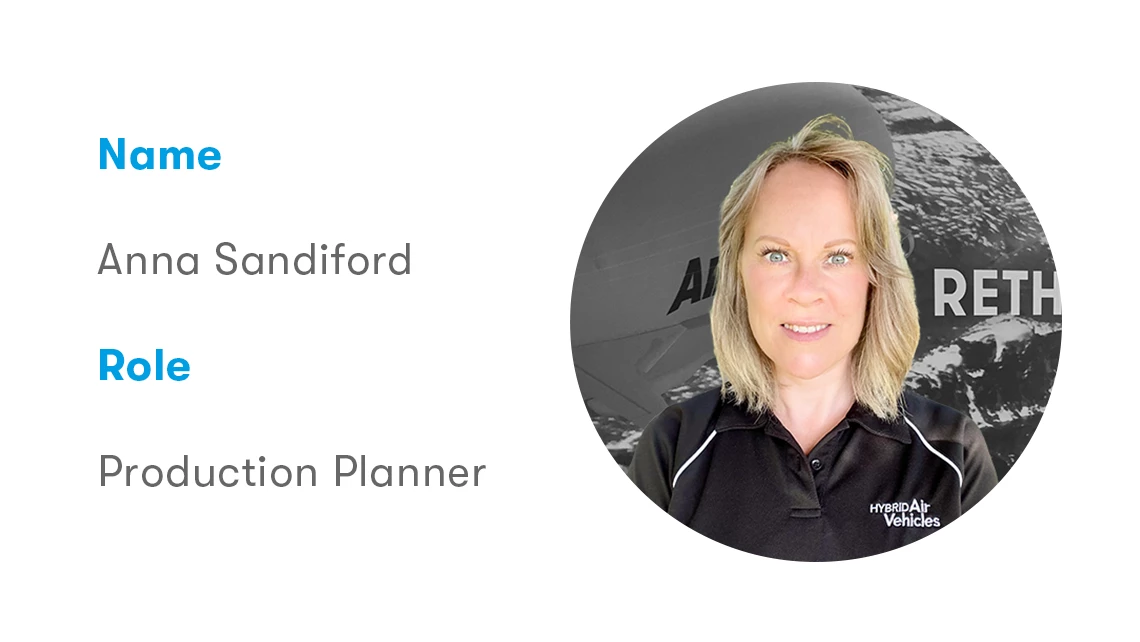What does a normal day at Hybrid Air Vehicles (HAV) consist of for you?
Having been with HAV for over 10 years I have accumulated responsibilities with a number of different departments so really, to me, a normal day can be quite varied. From raising purchase orders to developing process, delivering training to assisting departments. I tend to collaborate daily with department leads and colleagues to improve process whilst assisting users with the developing enterprise quality management system.
Tell us a bit more about your role at HAV.
The last four years have seen me seconded away from my original production planner/aircraft maintenance planner role to work with Independent Systems Monitoring. My role is to define scope and develop how the department satisfies regulatory requirements; assisting the Engineering department to develop process; creating new workflows and procedures to improve control of our existing quality processes with a focus on regulatory requirements. So much of what we do in the design organisation affects the production organisation, and vice versa, so I see myself as a conduit to bring synergy between the two organisations having now worked, at length, in both parts of the business.
How did you end up in a career in aviation?
During my career working with the Royal Air Force I was responsible for the purchase and repair of undercarriage hydraulic systems for Nimrod, Canberra, Wessex, Sea King, Hawks and Harriers. This was a demanding, yet satisfying role where I was fortunate enough to visit many different aircraft bases and my interest in aviation was realised. Following on from this I worked in other sectors where I developed skills in export/import, procurement, sales and marketing which have all proved advantageous in my HAV career.
What excites you most about the Airlander project?
I will be delighted to see the production Airlander in operation and impacting the world of aviation. I don’t think you can beat the feeling of seeing an extraordinary concept developed into a finished product and sharing in the success. It is a privilege to be a part of the HAV team.
What makes a production role within HAV different to other places you have worked?
The variety of tasks and the ability to be flexible is paramount, and I thrive on this challenge. The nature of HAV’s aircraft means there are often new challenges and each day is different. Working with individuals who all share the same passion for HAV, alongside an appetite to succeed, makes the team dynamic quite rare. The team ethos has continued to develop, and in some cases thrived, during remote working. The team has adapted and continued momentum towards the Entry Into Service programme and has demonstrated resilience and continued to build respectful working relationships.
What advice do you have for those interested in a career in STEM?
The development of cutting edge technology is dominant in STEM organisations, so having a flexible approach will stand you in good stead. The answers will not always be right in front of you, so having a tenacious nature will be an advantage. Any STEM organisation will expect the best you can possibly give, so having an aptitude for applying yourself is essential and in return you will find that every day pushes you a little further in your learning - not just of product and organisational processes, but how to deal with the challenges from a personal and team perspective. With all that you give the rewards will be worth it.


